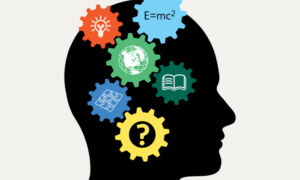Early childhood education refers to formal and informal teaching of children from birth to around eight years of age, with a primary focus on preschool and kindergarten years. This period is crucial because children experience rapid brain development, and the quality of education they receive has a significant impact on their learning abilities, emotional regulation, and social skills.
ECE programs often include a blend of play-based learning, structured activities, and opportunities for creative exploration, fostering a well-rounded approach to development. The curriculum covers language, motor skills, cognitive learning, and social interactions—all designed to stimulate a child’s natural curiosity and development.
Table of Contents
Why is Early Childhood Education Important?
1. Brain Development
During the early years, a child’s brain undergoes rapid growth, forming connections that will shape their cognitive abilities. The foundation for essential skills like problem-solving, communication, and critical thinking is established during this time. High-quality early education stimulates brain development by providing a rich learning environment filled with activities, social interaction, and hands-on experiences.
The stimulation children receive at an early age builds neural pathways that enhance memory, language acquisition, and emotional intelligence. Studies have shown that children who participate in well-structured early childhood programs tend to perform better academically and socially throughout their school years.
2. Social and Emotional Skills
Early childhood education helps children learn how to interact with their peers and adults, setting the stage for future social relationships. Through group activities, play, and collaborative projects, children develop communication skills, empathy, and cooperation. These experiences teach them how to share, resolve conflicts, and express their emotions appropriately.
Furthermore, ECE fosters emotional resilience by helping children understand their feelings and develop coping strategies. A supportive, nurturing environment with positive reinforcement can help children build self-confidence and emotional regulation, both of which are crucial for personal and academic success later in life.
3. Language and Communication Skills
Language development is a key component of early childhood education. During this critical stage, children absorb language rapidly, and exposure to rich vocabulary and interactive conversations can significantly enhance their linguistic abilities. Reading stories, singing songs, and engaging in conversations with teachers and peers foster language acquisition, comprehension, and communication skills.
Children who attend ECE programs often enter school with stronger language skills, which can make the transition to formal education smoother and more successful. Early exposure to language-rich environments also contributes to better literacy outcomes in later years.
4. Cognitive and Problem-Solving Skills
Early childhood education encourages children to explore, question, and think critically. Through guided play, problem-solving tasks, and hands-on activities, children develop their cognitive abilities. They learn how to identify patterns, count, classify objects, and make connections between concepts.
Children’s natural curiosity is nurtured in ECE settings, which leads to a love for learning and a positive attitude toward education. By stimulating their minds with challenging and engaging activities, ECE helps children develop problem-solving skills that will serve them well throughout their academic journey and beyond.
5. Preparation for Formal Schooling
One of the primary goals of early childhood education is to prepare children for formal schooling. ECE helps ease the transition to elementary school by teaching children basic academic skills, as well as social and behavioral expectations. Children learn how to follow instructions, sit in a classroom setting, work in groups, and manage their time.
A strong foundation in literacy, numeracy, and social skills prepares children to enter kindergarten or first grade with confidence. Research shows that children who attend high-quality preschool programs are more likely to perform well academically and have higher graduation rates.
Long-Term Benefits of Early Childhood Education
1. Academic Success
Children who participate in early childhood education tend to have better academic outcomes later in life. Studies have demonstrated that students with an ECE background often outperform their peers in areas like reading, writing, and math. This early advantage sets the stage for continued success, as children build on the foundational skills they acquired during their early years.
Furthermore, the benefits of early childhood education extend beyond elementary school. Research shows that students who attend quality preschool programs are more likely to graduate from high school and pursue higher education. ECE programs foster a love for learning that can have a lasting impact on a child’s educational journey.
2. Improved Social Behavior
Early childhood education programs teach children the importance of teamwork, cooperation, and empathy. These social skills are essential for forming healthy relationships and navigating social situations throughout life. Children who attend preschool are often better at resolving conflicts, sharing, and collaborating with others.
In the long run, these positive social behaviors contribute to better mental health and emotional well-being. Children who learn how to manage their emotions and build meaningful connections during their early years are more likely to develop strong, supportive relationships in adulthood.
3. Reduced Achievement Gaps
Early childhood education plays a critical role in reducing achievement gaps among children from different socioeconomic backgrounds. Access to quality preschool programs can help level the playing field for children who may face disadvantages due to poverty or lack of resources. By providing children with a strong start, ECE ensures that all children, regardless of their background, have the opportunity to succeed in school and life.
Investing in early education programs can also have a positive economic impact by reducing the need for costly remedial education or social services later in life. Children who receive early intervention and support are more likely to become productive members of society, contributing to economic growth and social stability.
4. Lifelong Learning and Adaptability
The skills and values instilled in children during early childhood education go beyond academic knowledge. ECE helps children develop a growth mindset, teaching them how to embrace challenges and view failure as a learning opportunity. This mindset fosters a lifelong love for learning and adaptability, which are essential in a rapidly changing world.
Children who are curious, confident, and willing to learn new things are better equipped to navigate the challenges and uncertainties of adulthood. Early education encourages a proactive approach to problem-solving and critical thinking, setting the stage for personal and professional success.
The Role of Parents and Educators in ECE
Both parents and educators play a vital role in ensuring the success of early childhood education. Parents are a child’s first teachers, and their involvement in a child’s education is crucial. Engaging in activities like reading together, playing educational games, and encouraging curiosity at home reinforces the lessons learned in preschool.
Educators, on the other hand, are responsible for creating a supportive and stimulating environment in the classroom. High-quality ECE programs rely on trained, dedicated teachers who understand child development and can tailor their teaching methods to meet the needs of each child.
Conclusion: A Worthwhile Investment in the Future
The importance of early childhood education cannot be overstated. It provides children with a strong foundation for cognitive, social, and emotional development, ensuring they are well-prepared for the challenges of formal schooling and beyond. From better academic performance to improved social skills and lifelong adaptability, the benefits of ECE are profound and far-reaching.
Investing in high-quality early education programs is not just beneficial for individual children—it’s a smart investment for society as a whole. By supporting the growth and development of young children, we are building a brighter, more successful future for everyone.
Read More : The Roles and Responsibilities of the Special Educator





Your blog post was like a breath of fresh air. Thank you for reminding me to slow down and appreciate the beauty of life.
I have been surfing online more than 3 hours today, yet I never found any interesting article like yours. It is pretty worth enough for me. In my opinion, if all web owners and bloggers made good content as you did, the web will be much more useful than ever before.
toobit exchange
Isla Moon Very well presented. Every quote was awesome and thanks for sharing the content. Keep sharing and keep motivating others.
of course like your website but you have to check the spelling on several of your posts. A number of them are rife with spelling issues and I in finding it very troublesome to inform the reality on the other hand I will certainly come back again.